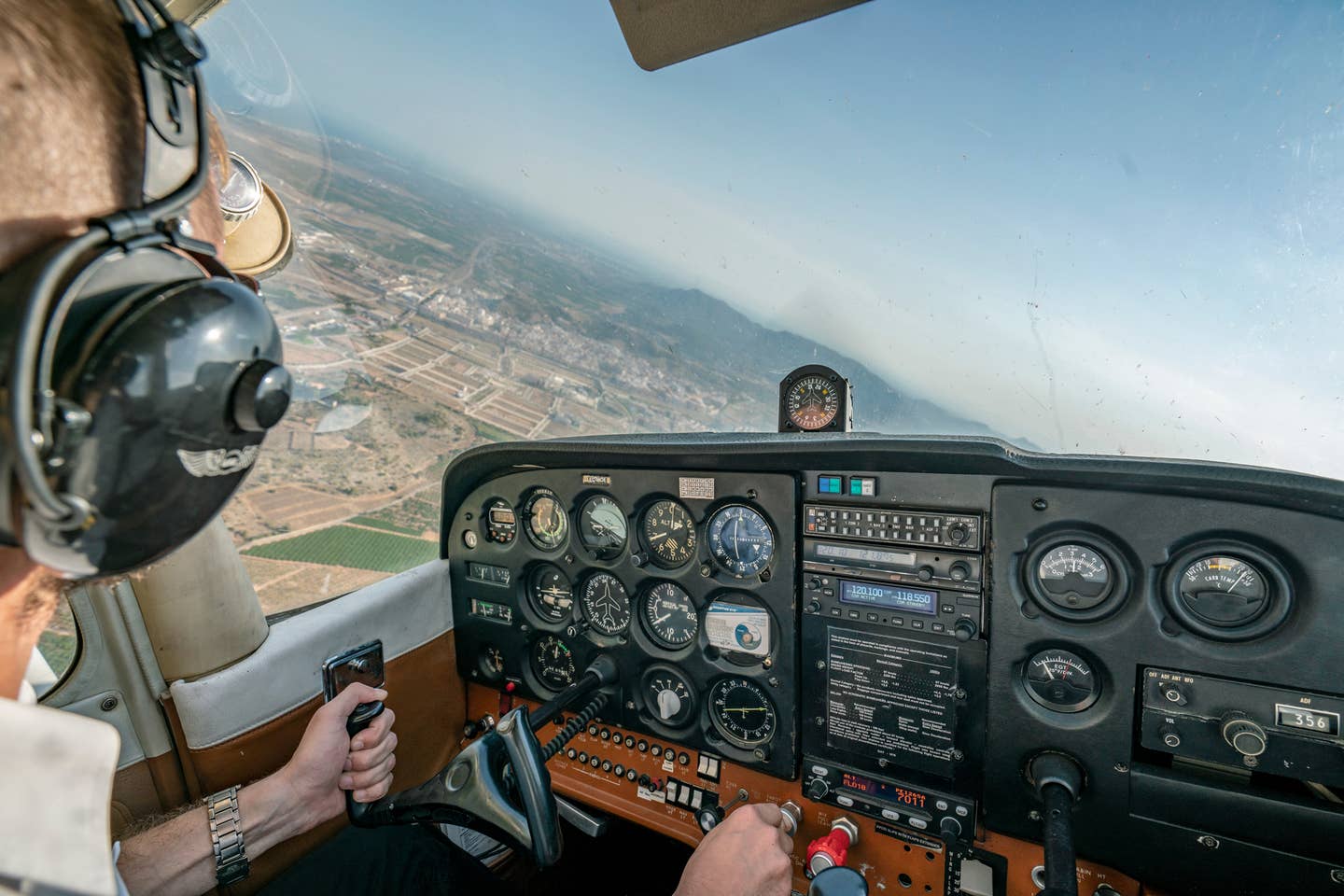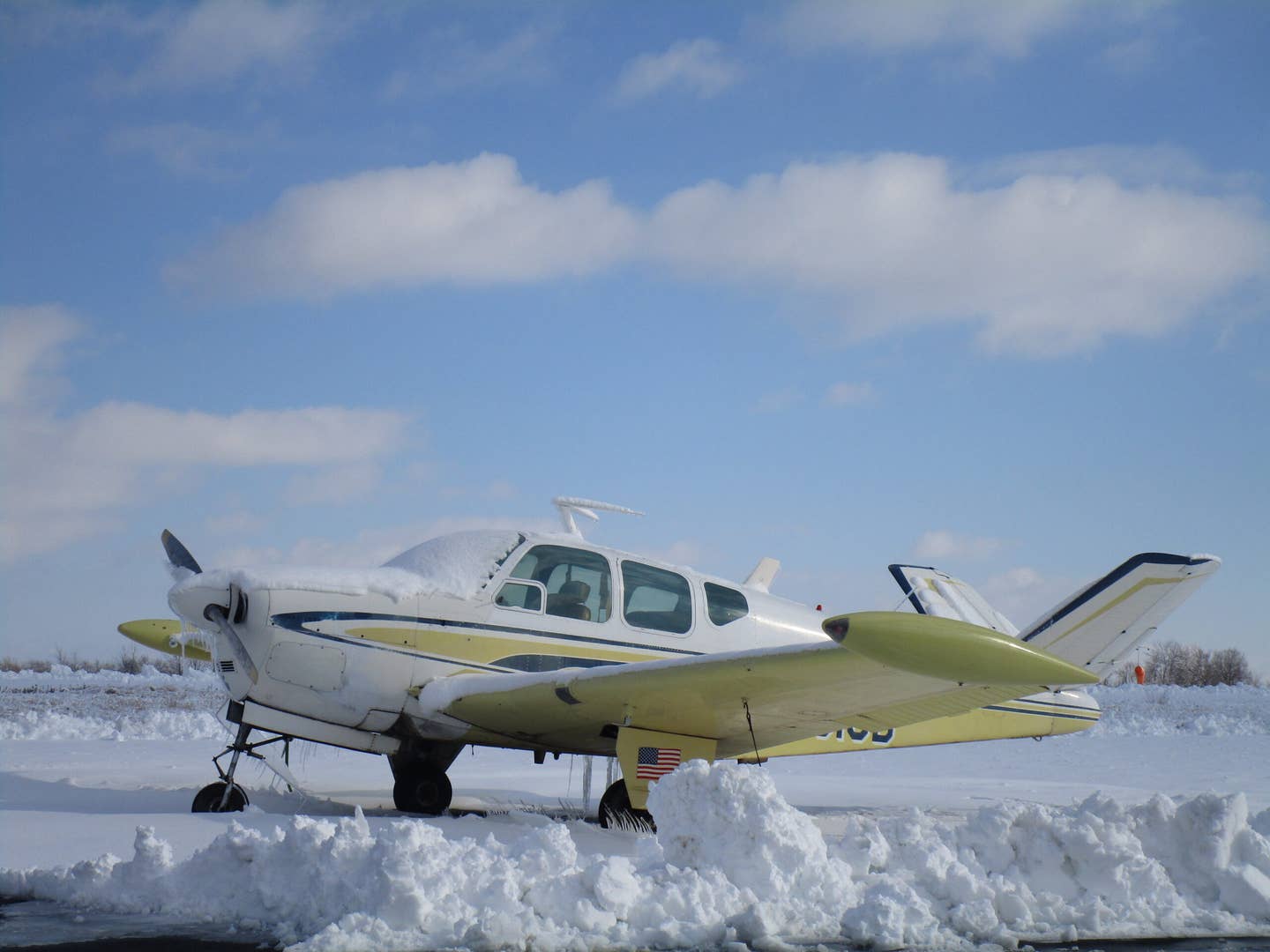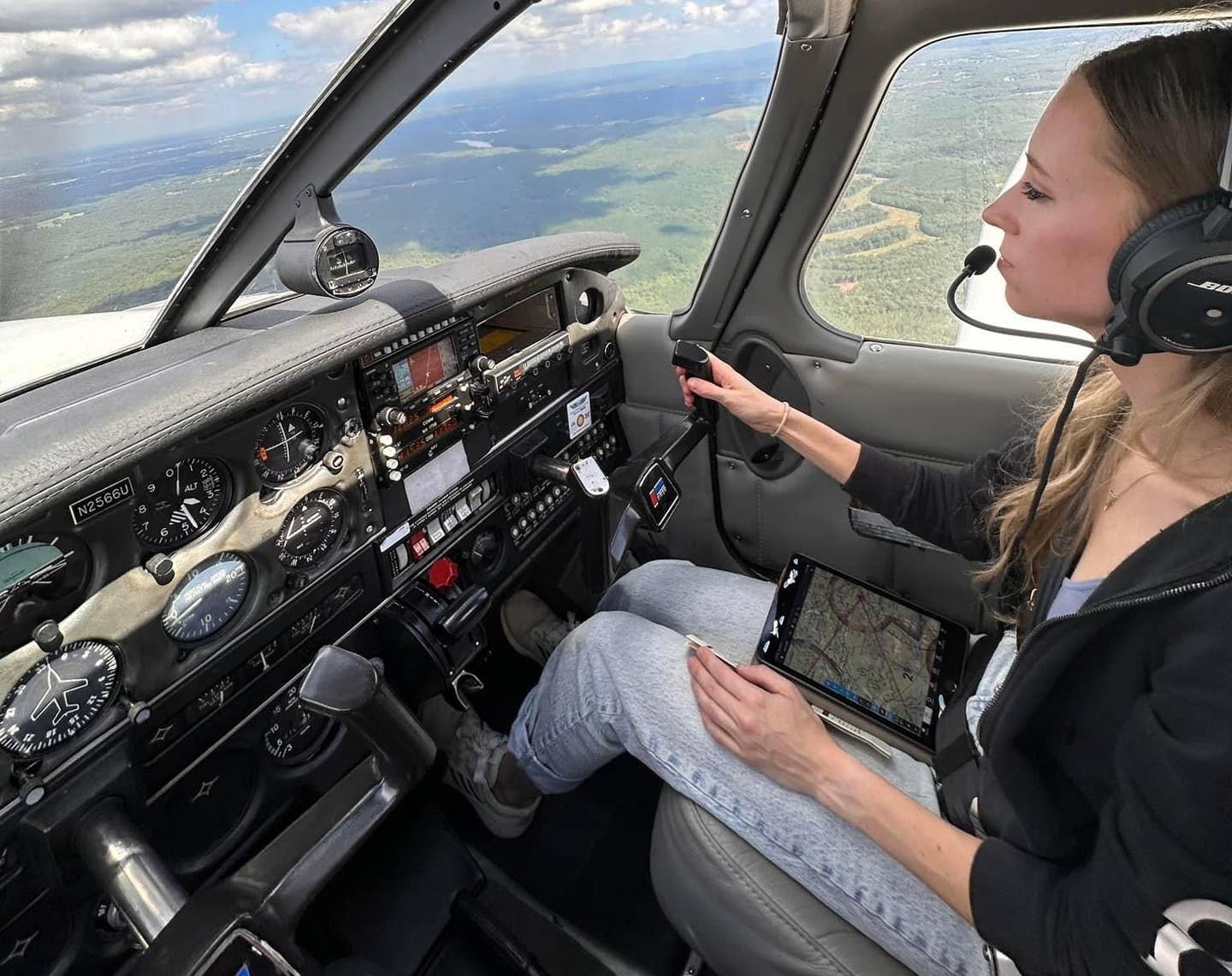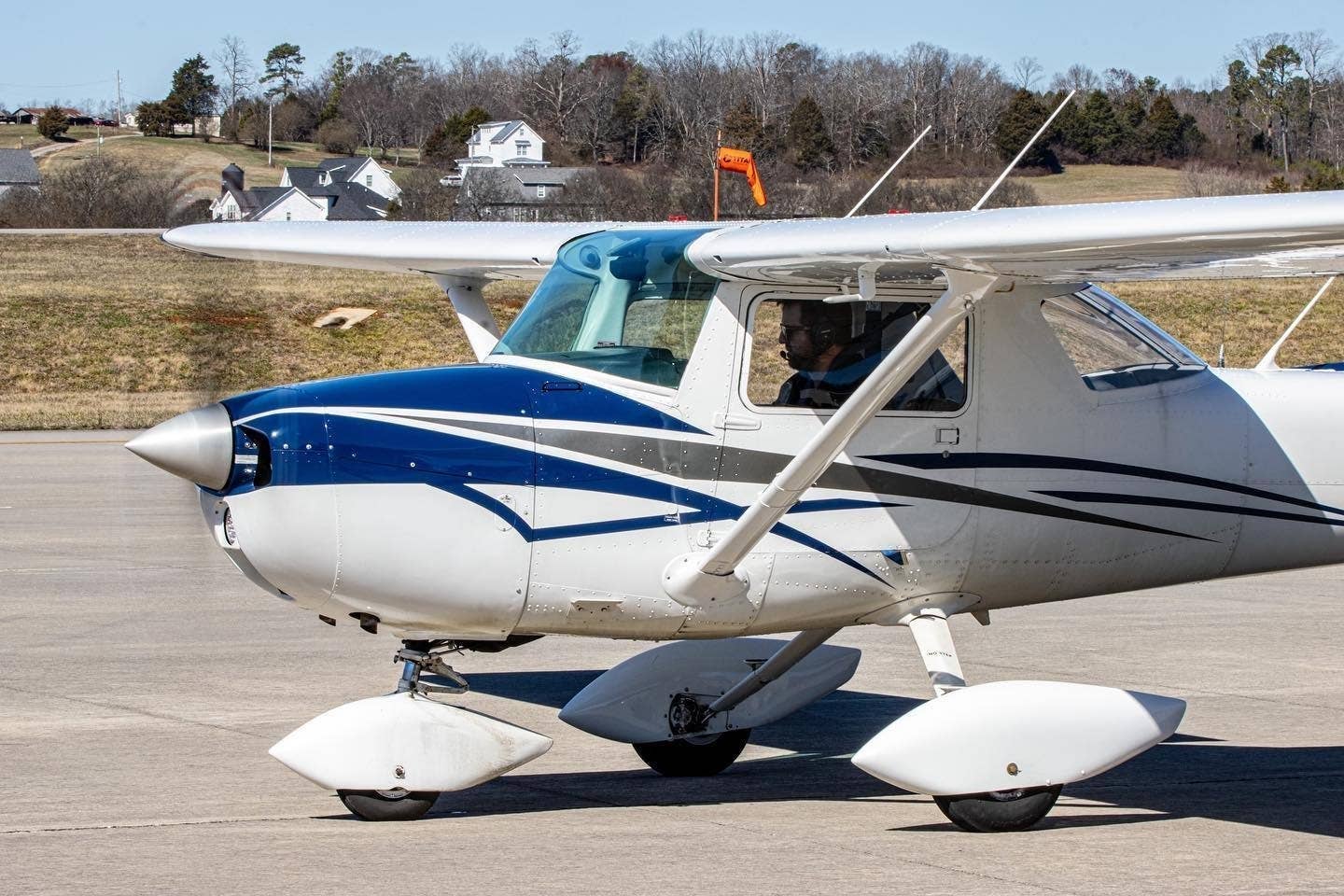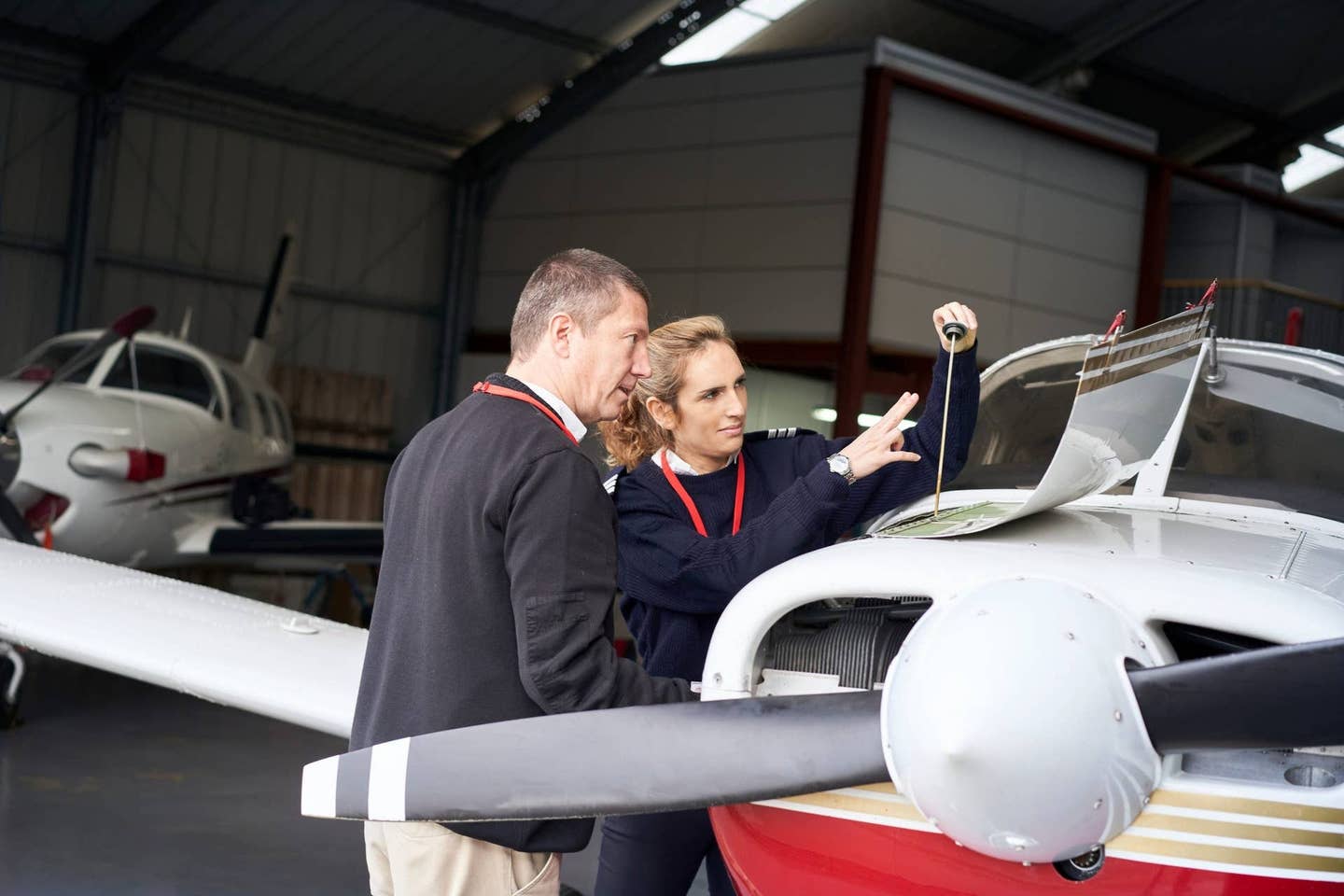Should You Become An Airline Pilot?
Here’s what you need to know about life as an RJ pilot
If you've been around aviation for very long, you've watched airport fences get taller and more robust. At most airfields, the days of just walking up and introducing yourself are long gone. You must have security checks, key cards and a blessing from the Vicar of Christ on Earth to gain access to the ramp these days, it seems. Okay, maybe you don't need the Pope's approval. But, even with an Airline Transport Pilot certificate in my pocket, and as a certified aircraft mechanic, it's still intimidating to wander up to an airport and try to find a way into the action.
The fences aren't only around the flying fields. We've built fences within the flying profession, as well. Grieving relatives of passengers from the Colgan accident in Buffalo petitioned Congress for assurance of passengers' safe passage on airlines. What they got was a much higher barrier for entry to fly at the airlines. Now, instead of a freshly inked commercial rating, pilots must have an Airline Transport Pilot certificate before they take the controls as first officer at any airline. The academic and experience bar was raised, and many pilots cheered this move: The reasoning was that we were more valuable now and should earn higher wages.
What happened, though, is that we raised the fence surrounding the flying profession. We may have even dug a moat and released a couple of alligators into its waters.
If you're standing outside the fence while considering a career flying for the airlines, take care that you jump into the right spot. It's mighty embarrassing when you hop a fence and land in the pigs' mud pit if you were expecting a grassy meadow where the sheep graze.
Many pilots spend tons of money for years of training before they become professional pilots. They see the goal well beyond the horizon and they aim for it, making small steps from the first flight lesson until they push the thrust levers up a jet. So you might imagine the shock when I was invited for an airline interview with a simple statement: "Come to FlightSafety on Tuesday and wear a tie."
I was 26 years old, bouncing between college and full-time employment, struggling monthly to make the bills. I'd been an airport bum since my early teens, the whole affair starting when my grandfather took me to the Delta Air Lines Technical Operations Center one Sunday morning when I was 10 years old. We sat in the flight deck of a giant jet, and he told me this sort of space could be my office someday, if I worked for it.
My family didn't have money to tackle their firstborn's new obsession, but a few summers of helping my dad repair logging equipment equipped me with a set of skills that paid dividends: I was mechanically inclined, and I had hands that could reach into spaces that older mechanics didn't want to deal with. Once the flying bug bit, I found a mechanic at the local airport who let me start out flying a push broom. As I persevered, I graduated to screwdrivers, wrenches and, occasionally, a hammer. After the experience of helping my dad repair logging equipment in the Alabama summer swelter, the worst day of maintaining airplanes paled in comparison. The flights in the mechanic's Cherokee every Saturday were infinitely more valuable than the dollar bills he occasionally pressed into my hands.
A decade passed, and although my résumé added a page of work experience including flight schools, repair stations and airshow teams, I really wasn't going anywhere fast. The tempo picked up one day when I wound up repairing a Cherokee 180 owned by an airline recruiter: Try as I may, words cannot express the shock of an airline job offer falling into my lap. Trying to maintain a cool appearance, I admitted I was a single-engine private pilot. "Oh? None of your friends who work with me said that when they were bragging on you. Get your ratings and give me a call then," he said.
I'd been working toward this goal since the beginning, but by investing sweat equity, I'd spent less money than many to get there. The problem is, I'd been walking toward the goal with my eyes focused on a short-term view. Consider it the aviation equivalent of a teenager following his smartphone's GPS without looking up. When I showed up at my airline for day one, I was that kid, standing in the median of an interstate highway with very little situational awareness of the industry. Let's look at some of the things you might want to know before you make the leap.
"Many regional airlines now boast all sorts of bonuses, and you could start on day one at some carriers making about what I make as an eighth-year first officer. Some of those bonuses are guaranteed for the length of the pilot contract in place. Some are not. Check the fine print!"
First of all, can you afford this job? If you've been instructing to build time, you're probably not rolling in discretionary funds to support your new career. The first-year pay at regional airlines is improving, for sure, but some carriers are still stuck on pay rates written a decade ago under very different market conditions. I started out at $19 an hour, which had jumped to $23 an hour under a new contract by the time training was complete. While that hourly rate doesn't sound terrible, to the 40-hour-work-week crowd, airline pilots don't hit a time clock and start collecting pay the moment they show up for a trip. We're paid for the hours flown, which are limited by regulations. Whatever airline you're considering interviewing with, get your hands on a copy of their pilot CBA, or Contractually Based Agreement. That document holds all the answers, but you'll need the ability to read legalese as a second language before you can get to some of the answers. Monthly guarantee is your baseline salary for the month. Let's use a 75-hour guarantee as an example. If you fly less, you get paid 75 hours. If you fly more, you get paid more. But, if you wind up on reserve for a long stretch, you might not break guarantee often, so plan your budgets for guarantee and bank anything above that. It was four-and-a-half years from my first day at the airline until I could hold a line. In that time, I broke guarantee twice. Many regional airlines now boast all sorts of bonuses, and you could start on day one at some carriers making about what I make as an eighth-year first officer. Some of those bonuses are guaranteed for the length of the pilot contract in place. Some are not. Check the fine print!
As a reserve pilot, you're kind of like a substitute teacher. You'll show up some days with no clue of the backstory. Some trips looked normal on paper, and crew scheduling had no sense of urgency when they called me in to work. More than once, I showed up and there was nobody at the gate when I arrived. Walking down the jet bridge, the gate agent herded me onto the plane and immediately started pulling the jet bridge from the airplane. A full boat of passengers erupted into cheers and applause for me as I worked my way aft to stow my bag: Their flight was just under 24 hours late. None of us ever learned the whole story, and as a reserve pilot, it will be a fact of life. There will be days when you apologize for things you had no control over. There will be days you didn't even know anything was wrong. Regardless of what a finely oiled machine your airline may be, there will be days when weather, maintenance and simple human factors conspire in ways that can't be surmounted.
In time, you'll graduate from reserve to line holder. The pilots with a hard line know their schedule at the start of the month. At many carriers, line holders get an extra day off each month, guaranteed. For example, reserve pilots might get 11 days a month off while line holders get 12. As pilots gain seniority, they can fly productive trips that net a full month's pay with more days a month off. To put it into perspective: Most of my reserve flying netted 75 hours' pay a month with 11 days off. As a fairly senior line holder, 18 days a month off with 80 hours of pay credit isn't difficult to achieve. The longer you stick around, the better this job gets. As a line holder, you can choose your own adventure. You can work your tail off and make some money, or you can bid to fly as little as possible if you have a side business. We see plenty of both types in this business.
In the eyes of many, upgrade time is the gauge by which many decisions hinge. When I hired on, the upgrades at my carrier were running around 3 to 4 years from new hire to captain. Age 65 retirement went into effect right as I joined the airline world, though, and retirement-based attrition ceased for five years as the senior captains industry-wide stuck around in an attempt to refill their gutted retirement accounts. Everything in the airline world is seniority-based and the rising retirement age basically hit pause on the cassette player for our game of musical chairs. Here's why everyone weighed the upgrade times so heavily: Back then, major airlines weren't hiring unless you had pilot-in-command time at the helm of a jet. As the environment changed, so did the requirements. All of the legacy carriers have hired first officers from my airline now without that PIC time, but it's still a big feather to have in your cap when time comes to apply with the majors. Upgrading carries a hefty pay raise, as well.
While some airlines are even hiring captains off the street, realize that you'd have to be qualified for the left seat---it realistically is a tool used to poach senior first officers from other regional carriers. With it, a senior first officer who lacks the seniority to upgrade at his or her current employer could jump ship to a carrier that's short of captains. This situation grows out of airlines that hired pilots who lacked the experience to hold a captain's seat. What this means to you is this: If you're eligible and chase the carrot for a "street captain" position, you'll still be very junior with the company. You'll be junior to every first officer who upgrades. You'll be starting with a big zero in the bank for vacation and sick time. Most of the guys making the jump are gambling that the fresh training at a different carrier and the move to the left seat will wave the right flags to the legacy carriers where they ultimately want to land. It's a heck of a gamble. So far, I've resisted the urge to jump: Our bills are paid with a little left in the bank, I live in base, and three weeks of vacation a year are awfully hard to walk away from to start at the bottom of the list in a lateral move.
Your experience isn't portable in this business. In any other line of work, years of management experience would merit you a similar position at your next workplace. In an airline, it's all seniority-based. You could be a senior instructor pilot at one airline, but when you jump to another airline, you start at the bottom as a reserve first officer. It's frustrating, this system of seniority, but it's a fact of life in the airline business.
Domiciles, or crew base cities, are a significant factor to consider in choosing an airline. A beautiful part of being an airline pilot is having the ability to live anywhere. You can commute to work in the back of an airliner without paying more than your pass travel fees, but the cost on the home front is more than many can afford. As a commuter, you're a standby passenger, and as such, you may end up leaving home a day before your trips and spending a day in your domicile before you can catch a flight home. So, a monthly schedule with 12 days off might end up only having 8 days off if you end up using a day commuting before or after your trips. With time, you can learn the game and bid a better schedule, but there's no substitute for catching a bus to the crew lot after a trip and being home a half-hour later when the trip is over. The caveat here: Some crew bases come and go with the breeze. My airline has opened and closed several bases in the last decade or two. Domiciles in cities where the airlines are headquartered tend to stick around a little longer, although you might not be senior enough to hold them as a new-hire pilot. Some airlines have special consideration for commuters. Ours has a commuter clause that keeps you out of trouble as long as you make a reasonable effort to get to work. At least one airline provides a few nights of hotel accommodation in your domicile monthly to help with the commute.
New jets are a powerful force to reckon with. Shiny Jet Syndrome, some call it, is the itch to be wherever new planes are arriving. The honest truth, though, is that shiny jets don't stay clean long when they're flying 10 hours a day. Passengers drop their gum on the carpet without regard to the aircraft's age. The left thrust lever's paint is going to be worn through in a year's time from the first officers' wedding bands. The newest airplanes at my airline aren't a lot different from the middle-aged ones now, and they all pay about the same. So why the big fuss over these new planes? New airplanes being added as fleet growth means that more pilots are being hired than just to refill the ranks of those leaving for other jobs or retirement. The movement related to aircraft arriving on property can make your schedule improve rapidly. It doesn't really matter whether your carrier is picking up new planes from the factory or from desert storage, though. Growth is growth, and it's mighty good for your career progression.
There's a great resource for pilots looking to compare prospective employers. The website Airlinepilotcentral.com has a comprehensive collection of airline profiles updated by pilots that include details such as pay rates, benefits, fleet counts and often a mention of the most junior captain at the company to illustrate upgrade times.
Regardless of the information that was available, I did end up choosing the first airline that offered me a seat. There have been good days and bad, but you'll never know whether you've chosen the right path until you taxi through an arch of water and into retirement. For now, though, I'm not regretting it. Telling flying stories with pilots on trips, vacation trips I can only afford through non-revenue travel, and friendships forged with likeminded aviators are awfully difficult things to which one might assign value. I wouldn't trade anything for my flying career thus far, and I'm mighty excited to see where it goes from here.
I'm just glad I didn't wind up with the pigs when I jumped the fence and landed in this career.
Jeremy King is a regional first officer who lives in Atlanta, Georgia, with his wife, Amy. His logbook ranges from Aeronca to Zlin. In addition to tending the garden and minding a backyard flock of laying hens, he's restoring a Piper J-3 Cub that hasn't flown in 50 years.
Want to read more adventures and get insights from working pilots? Check out our AirFare archive.

Subscribe to Our Newsletter
Get the latest Plane & Pilot Magazine stories delivered directly to your inbox


